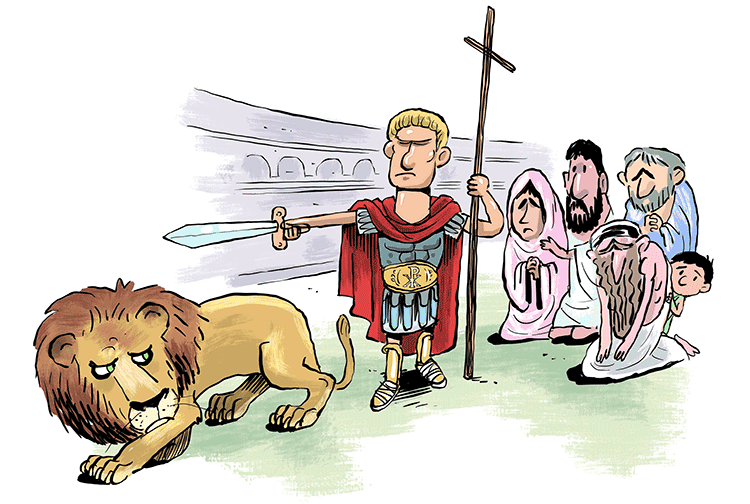Breaking the Stigma, Finding Biblical Encouragement, and Practical Steps Forward
“You Just Need More Faith…” 🤦🏽♂️
Ever heard this before? Someone opens up about their anxiety, depression, or burnout, and instead of getting real support, they’re met with:
- “Just pray more.”
- “Read your Bible, and you’ll feel better.”
- “Maybe you need to fast and cast out that spirit.”
While prayer and Scripture are powerful (and essential!), they’re not magic pills that erase mental health struggles overnight. But in many Christian communities, the stigma around mental health is so strong that struggling believers feel ashamed, weak, or even unspiritual for battling issues like anxiety, depression, or PTSD.
So let’s talk about it. Can you love Jesus and still struggle mentally? Let’s unpack this with truth, grace, and practical wisdom.

1. Breaking the Stigma: Why Do Christians Struggle to Accept Mental Health Issues?
Many Christians believe that being saved means living in total peace, joy, and victory. So when someone struggles emotionally or mentally, the assumption is often:
✅ “They don’t trust God enough.”
✅ “They must have unconfessed sin.”
✅ “This is a spiritual attack.”
While spiritual factors can play a role, mental health is not just a spiritual issue—it’s a whole-person issue. Just like Christians can get physically sick, they can also experience emotional and psychological struggles.
Why Do We Struggle to Accept This?
- Misinterpretation of Scripture 📖
- Verses like “Do not be anxious about anything…” (Philippians 4:6) are often taken to mean that all anxiety is sinful, rather than recognizing that Paul was encouraging people to bring their struggles to God in trust.
- Fear of Weakness 😔
- Many believe that admitting mental health struggles makes them appear spiritually weak. But Paul himself said, “When I am weak, then I am strong” (2 Corinthians 12:10).
- Over-Spiritualization of Everything 🙏🏽
- While spiritual warfare is real, not every mental health struggle is a demon that needs to be cast out. Sometimes, it’s trauma. Sometimes, it’s brain chemistry. Sometimes, it’s just being human in a broken world.
2. Biblical Encouragement: Does the Bible Acknowledge Mental Struggles?
Absolutely! The Bible is full of godly people who battled deep emotional pain:
- Elijah – This mighty prophet literally asked God to take his life (1 Kings 19:4).
- David – Read the Psalms, and you’ll see a man who wrestled with deep sorrow (Psalm 42:11, Psalm 88:3-4).
- Job – After losing everything, Job wished he had never been born (Job 3:11).
- Paul – He described being “utterly burdened beyond strength” to the point of despair (2 Corinthians 1:8).
- Jesus – In the Garden of Gethsemane, He said “My soul is overwhelmed with sorrow to the point of death” (Matthew 26:38).
If even Jesus experienced deep emotional distress, how can we say that mental struggles mean someone lacks faith?
3. Practical Steps: How Faith and Mental Health Can Coexist
Since mental health struggles are real, how do we walk through them as believers?
A. Acknowledge and Accept Reality
✅ It’s okay to admit that you’re struggling.
✅ It doesn’t make you less of a Christian.
✅ It doesn’t mean you’re failing spiritually.
Denying reality only deepens the struggle. Instead, bring it into the light.
B. Seek Wise Counsel
- God can work through pastors, therapists, and counselors.
- Therapy isn’t a lack of faith; it’s wisdom. Even Solomon said, “In the multitude of counselors there is safety” (Proverbs 11:14).
- If you broke your leg, would you refuse a doctor and just “pray it away”? No! The same goes for mental health.
C. Stay in Community
- Isolation makes struggles worse. Stay connected to people who will remind you of truth, encourage you, and walk with you.
- Find safe Christians who won’t judge but will support.
D. Take Care of Your Body and Mind
- Sleep well, eat well, exercise, and take breaks.
- Even Elijah needed food and rest before he could hear God clearly again (1 Kings 19:5-7).
E. Keep Seeking God
- Sometimes, in deep struggles, prayer feels impossible. But even in the silence, God is near (Psalm 34:18).
- Be honest with God. Cry out to Him, like David did in the Psalms.
Final Thoughts: You Are Not Alone
Being a Christian doesn’t mean living a problem-free life. It means having Christ with you through every struggle.
So, if you’re battling anxiety, depression, or any other mental health struggle, know this:
- You are not alone.
- You are not a failure.
- God is not disappointed in you.
Jesus isn’t standing at a distance, shaking His head at you. He’s with you, walking beside you, holding you up, and leading you through.
So let’s break the stigma. Let’s be a Church where people can be honest about their struggles without fear. Because mental health struggles don’t mean you lack faith—they just mean you’re human, and God loves you in every season.
Now, Let’s Talk…
What has your experience been like in Christian circles regarding mental health? Have you felt supported, or have you faced judgment? Let’s break the silence—drop your thoughts in the comments! 💬👇🏽










